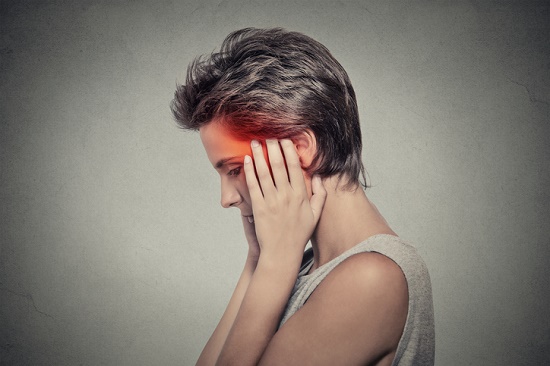
Though it’s true that there is currently no scientifically-verified way to cure tinnitus, researchers are hard at work to uncover one. In the meantime, a number of tinnitus therapy options are available that can offer significant relief.
Look at it in this way. When you have a headache, you take Tylenol regardless of the fact that it doesn’t “cure” your headache. Pain relievers only make the pain disappear into the background to ensure that it doesn’t impact your day. Likewise, tinnitus therapy can help reduce the degree of symptoms so that your tinnitus has minimal impact on your daily schedule.
Considering every person responds to tinnitus differently, there’s no one-size-fits-all treatment. You’ll have to work with your provider to uncover the option that is ideally suited for for you.
Here are some of those options.
Tinnitus Treatment Options
If you are afflicted by tinnitus, you’ll want to explore the following treatment options with your hearing care or healthcare provider.
Treatment of the underlying problem
While the majority of cases of tinnitus are not curable—and are the result of hearing loss or other non-reversible injury—certain cases are brought on by an underlying physical condition. You’ll want to rule these out before seeking other treatment methods.
Possible physical causes of tinnitus include jaw joint issues (temporomandibular joint, or TMJ dysfunction), too much earwax or other blockages in the ear canal, head and neck injuries, and reactions to specific medications.
General Wellness
The intensity of tinnitus symptoms can fluctuate depending on overall health. Taking steps to improve general wellness is, therefore, something tinnitus patients can get started on immediately to decrease the intensity of symptoms.
Each individual is different, and what works out for someone else might not be right for you. The idea is to experiment with different activities to learn what works best.
Strategies that have displayed promise include instituting a healthy diet, getting lots of physical exercise, meditating, and partaking in activities like bicycling, which can mask the sounds of tinnitus.
Hearing Aids
Tinnitus is frequently linked to hearing loss and hearing injury. In response to reduced stimulation from external sound, the brain undergoes maladaptive changes that give rise to the perception of tinnitus.
By boosting the magnitude of external sound, hearing aids can help mask the tinnitus, making the sounds of tinnitus less perceptible. Hearing aids additionally supply enhanced sound stimulation to the brain, which is considered to be neurologically favorable.
Sound Therapies
Sound therapy is essentially the delivery of sound in the form of white noise, pink noise, or nature sounds to lower the perceived burden or intensity of tinnitus.
Sound therapy works by covering up the tinnitus and additionally by retraining the brain to reclassify the sounds of tinnitus as inconsequential. This combined effect can minimize the short and long-term intensity of tinnitus.
Sound therapy can be provided through special tabletop gadgets, but also through portable multimedia devices and even through hearing aids. Medical-grade sound therapy uses individualized sounds that match the pitch of the individual’s tinnitus for the most effective outcomes.
Behavioral Therapy
Keep in mind that tinnitus is the sense of sound in the brain when no external sound is present. The affliction is, for that reason, highly personal, and each person responds differently.
In fact, whether or not the person perceives tinnitus as debilitating or minor is largely due to emotional tendencies and not to the loudness or pitch of the tinnitus. That’s why cognitive/behavioral solutions to tinnitus therapy have been shown to be very effective.
A number of techniques are available, including Mindfulness-Based-Stress-Reduction (MBSR) and Tinnitus-Retraining-Therapy (TRT), which combines cognitive-behavioral-therapy with sound therapy.
Drug Therapy
Even though there are no current FDA-approved medications for tinnitus, antianxiety and antidepressant medications are often used to manage the behavioral side effects to tinnitus. These drugs do not appear to affect tinnitus itself, but may offer much-needed relief if thought to be appropriate by your doctor.
Experimental Therapy
The search for a tinnitus cure is ongoing. A number of experimental therapies are in development or evaluation and new techniques become available each year. If your tinnitus is significant, and you’ve experienced very little benefit from existing therapies, you could be a candidate for one of these innovative treatment options.
Visit the Experimental Therapies webpage at the American Tinnitus Association website for additional details.
Find Relief For Your Tinnitus
Tinnitus is currently being aggressively researched, with new discoveries and prospective treatment methods introduced every year. Even now, you can find a variety of promising treatments that, while not supplying a cure, can supply considerable relief. You owe it to yourself to explore these options, stay positive and persistent in your tinnitus care, and work with your provider to adjust your treatment plan for the greatest results.
